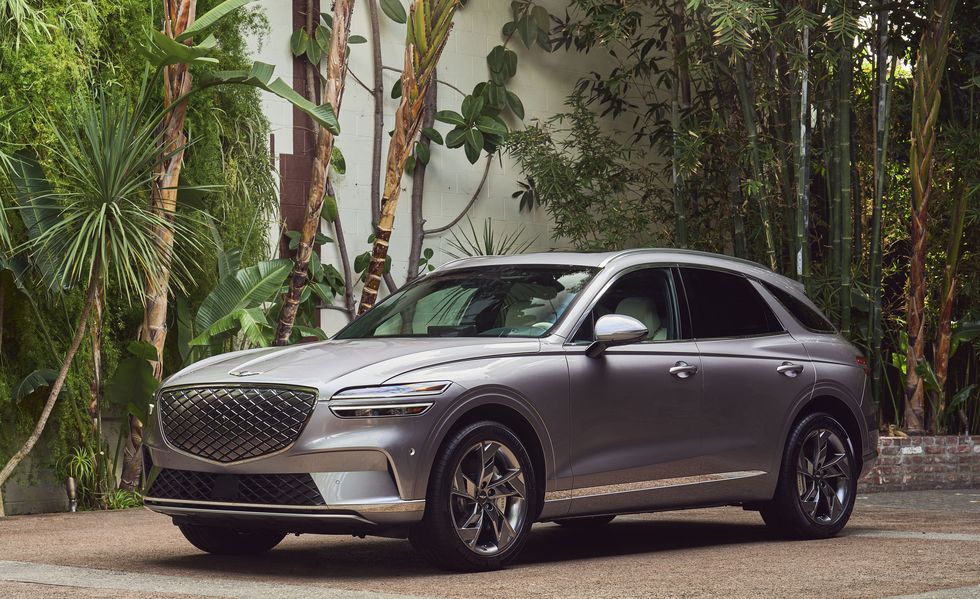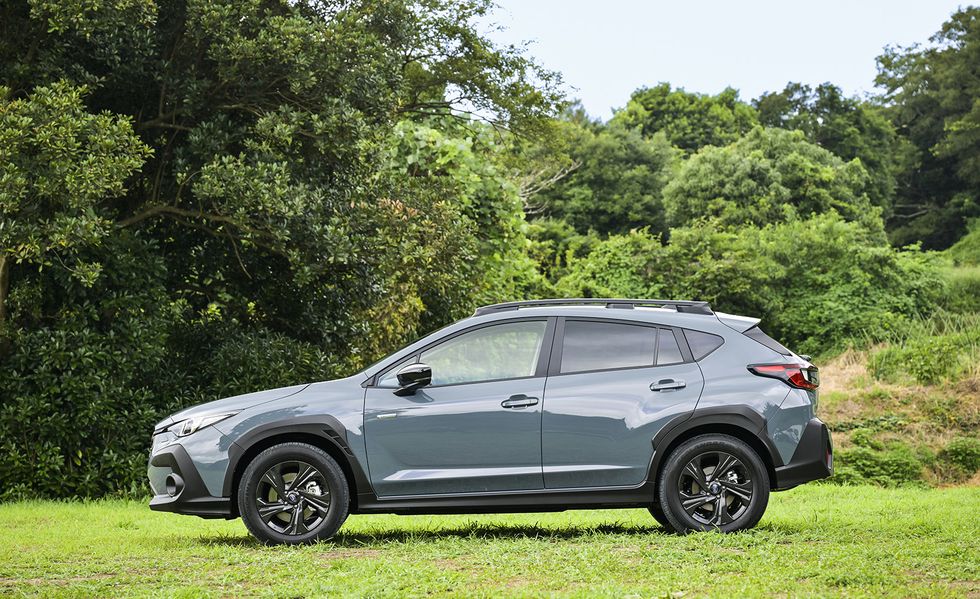We Name the EV Tax Incentive Winners and Losers

Last August, President Biden signed the Inflation Reduction Act. Among its hundreds of pages were measures to restructure the federal tax incentive for buying a plug-in vehicle and boost U.S. production of EVs and their batteries. Much confusion ensued.
Final guidance was issued by the U.S. Treasury on March 31, meaning next Tuesday, April 18, is the day everything changes. That day, only battery-electric and plug-in-hybrid vehicles assembled in North America (U.S., Canada, or Mexico), with MSRPs less than $55,000 for cars and $80,000 for SUVs and light trucks, will qualify for purchase incentives up to $7500. Equally challenging, the sources of certain percentages of their battery minerals and components are restricted to a specific list of countries—one that notably does not include China, by far the world’s largest source of those components today.
Regrettably, the EPA says it will not revise its list of eligible EVs until April 17—the day before the new rules come into effect. And note that commercial-fleet customers that lease their EVs can qualify for the full incentives regardless of the factors above.
In a statement, Alliance for Automotive Innovation CEO John Bozzella told Reuters the requirement that EVs must be assembled in North America to qualify for any credit eliminated 70 percent of EV models on sale today.
Car and Driver reached out to automakers to ask whether their batteries and minerals were compliant with the new regulations as well. The short answer? It’s complicated.
Looking at the EVs on the market for 2023, winners and losers in the incentives game start to emerge based on where they’re built. Here is our non-comprehensive list of where we stand for retail buyers a week before the new rules take effect.
The Apparent Winners
CHEVROLET, GMC, CADILLAC: General Motors not only plans to build all its future EVs in North America but has announced numerous mineral-sourcing contracts and is setting up at least three battery plants as joint ventures with its longtime cell partner LG Energy Solutions.
The company gave Car and Driver a statement that read: “We expect a number of our Ultium-based EVs, including the Cadillac Lyriq and additional EVs launching this year like the Chevrolet Equinox EV SUV and Blazer EV SUV, to qualify for the full $7500 credit in 2023.” Of those, only the Lyriq is presently in production, albeit at low volumes thus far. Matthew Ybarra, GM senior manager of public policy communication, added that future versions of the upcoming Chevrolet Silverado EV pickup truck that are priced under $80,000 will also qualify.
Left open is the question of whether the Chevrolet Bolt EV and EUV, built in Michigan, qualify for the full $7500. Ybarra told Car and Driver that the company expects both Bolts “to qualify for some level of credit even after the new rules go into effect on April 18” and promises to share an update “in the near future.”

Lincoln Aviator Grand Touring hybrid.
Lincoln
FORD, LINCOLN: Last Wednesday, Ford said all six of the vehicles with plugs it now sells will be eligible for at least partial IRA credits. The Detroit-built Ford F-150 Lightning EV pickup gets the full $7500, as does the Chicago-built Lincoln Aviator Grand Touring plug-in hybrid.
The Mustang Mach-E (built in Mexico), the e-Transit commercial van (Kansas City), and the Ford Escape PHEV and Lincoln Corsair Grand Touring (both built in Louisville) get $3750 based on either location or the sources of their battery components and assembly.
TESLA: By far the largest U.S. maker of EVs, the Silicon Valley startup is now almost two decades old and has sold more than 4 million vehicles. It builds all four of its models and most of its battery packs in California, Nevada, and Texas, but its larger Model S and Model X exceed the price caps. Tesla does not communicate with the press, but it said 10 days ago it expects the rear-wheel-drive Model 3 to receive a lower tax credit—likely because of its China-sourced iron-phosphate battery.
We won’t know until the final list of eligible vehicles drops, but perhaps compensating for more incentive cuts, earlier this month the company cut $5000 off the prices of Model S and Model X, $2000 off Model Y prices, and $1000 off the Model 3 sticker.

Genesis Electrified GV70.
Genesis
GENESIS: This month, the Korean luxury brand is launching the Genesis Electrified GV70, a battery-electric version of its popular GV70 compact crossover. That version, and only that version, is now assembled in the Hyundai plant in Montgomery, Alabama. As of Monday, said Jarred Pellat, the brand’s senior manager for PR and communications, Genesis is “in the process of determining what, if any, portion of the EV tax credit the U.S. assembled Electrified GV70 qualifies for after the April 18 effective date.”

Jeep Wrangler 4xe Sahara.
Stellantis
STELLANTIS (Jeep, Ram, Dodge, Chrysler): The Chrysler Pacifica (plug-in) Hybrid minivan and the Jeep Wrangler 4xe and Grand Cherokee 4xe plug-in hybrids are built in North America. The Pacifica will keep the full credit of $7500, but the plug-in hybrid Jeeps will fall to $3750 each. The upcoming Dodge Hornet R/T plug-in hybrid is built in Italy, so it won’t qualify. Stellantis sells no battery-electric vehicles in North America today.
Contenders
HYUNDAI and KIA: Given these brands’ aggressive plans to launch a full array of EV models and the good reviews received by their newest models, it is undoubtedly a blow to their U.S. arms that all tax incentives will vanish on April 18. However, last May the company announced it will build a dedicated EV assembly plant in Georgia. Those plans have likely accelerated—meaning the first U.S.-built Hyundais and/or Kias might qualify for credits as soon as the end of next year.

Nissan Leaf.
Jay K. McNally/Nissan
NISSAN: The company has built Leaf battery-electric hatchbacks at its Smyrna, Tennessee, plant since 2013, with battery cells assembled in an adjacent facility. Ted Kreder, its senior manager of EV sales and strategy, told Car and Driver the company is still checking whether the Leaf—which he confirmed will continue into the 2024 model year—will qualify for incentives. The company’s new Ariya EV crossover, however, will not qualify.

Volkswagen ID.4.
Volkswagen
VOLKSWAGEN, AUDI, other brands: The company started assembling its ID.4 electric compact SUV in Tennessee last July. But it is still assessing whether it qualifies for incentives. VW rep Mark Gillies told Car and Driver, “We are carefully reviewing the draft guidance and are consulting with our supply-chain partners to evaluate the Section 30D battery component and critical mineral requirements.”
Longer term, VW feels it is well positioned. By 2030, it says it will offer 25 separate EV models in the U.S. among its stable of brands—not only VW but also Audi, Bentley, and Lamborghini. Last week, Volkswagen Group of American CEO Pablo Di Si told Bloomberg Television it expects all of those to qualify for the maximum $7500 in incentives.

HONDA and ACURA: The Japanese maker will launch the Honda Prologue and Acura ZDX battery-electric SUVs in 2024. Both vehicles will be assembled in North America by GM on the company’s Ultium platform. Based on GM’s responses above, that should qualify both vehicles for full incentives.
Will These Brands Miss Out?
AUDI, BMW, MERCEDES-BENZ: Many of these brands’ several EVs currently exceed the price caps of $55,000 for passenger cars and $80,000 for SUVs. And lower-priced models like the Audi Q4 e-tron and Mercedes-Benz EQB SUV are not currently built in North America. Business leases to those who qualify may help significantly, but until they start building EVs in North America, the German luxury trio is out of luck.

TOYOTA, LEXUS: The world’s most profitable mass-market carmaker has also been among the most reluctant to launch vehicles that plug in. It sells only four in the U.S. among its two brands, of which only the Toyota RAV4 Prime and Prius Prime plug-in hybrids do any significant volume. Those are both built in Japan (unlike all other RAV4s, which are assembled in North America). Its bZ4X crossover, launched and then recalled due to a problem in which the wheels might fall off, is built in Japan—no incentives. Ditto for the Lexus NX450h+ plug-in hybrid, the only variant of its NX not built in North America.
In February, Toyota said it would build EVs at a plant in Kentucky, powered by batteries made in North Carolina. By the end of 2025, it hopes to build roughly 10,000 electric SUVs a month, selling as many as 200,000 EVs a year in the U.S. starting in 2026.

SUBARU: Its Solterra electric crossover is a rebadged Toyota bZ4X built in Japan, making it ineligible. The latest 2024 Crosstrek has just been released, and the company has stayed mum on whether it will add the (plug-in) hybrid version it offered for the previous generation. But Crosstrek production has now moved from Japan to Indiana, so there’s at least a theoretical chance Subaru might get some credits for a U.S.-built Crosstrek PHEV. Stay tuned.
MAZDA: The company sells the MX-30 EV strictly in California. The small EV is built in Japan and would not qualify for any federal incentives. The new CX-90 SUV offers a PHEV option, but it’s built in Japan. Like Subaru, it would be likely to get any future battery-electric technology via its Toyota connection.

Contributing Editor
John Voelcker edited Green Car Reports for nine years, publishing more than 12,000 articles on hybrids, electric cars, and other low- and zero-emission vehicles and the energy ecosystem around them. He now covers advanced auto technologies and energy policy as a reporter and analyst. His work has appeared in print, online, and radio outlets that include Wired, Popular Science, Tech Review, IEEE Spectrum, and NPR’s “All Things Considered.”He splits his time between the Catskill Mountains and New York City, and still has hopes of one day becoming an international man of mystery.



